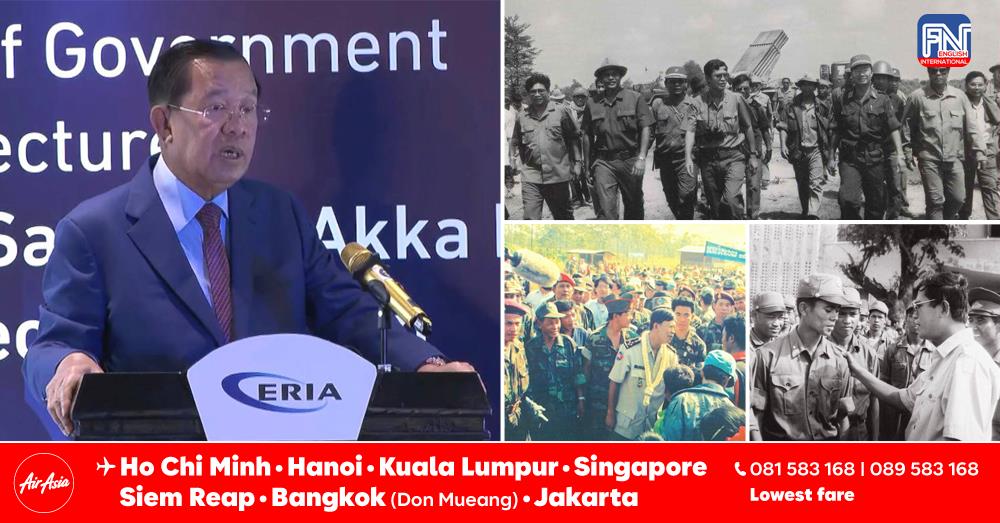(Jakarta): Cambodian Senate President, Samdech Techo Hun Sen affirmed that Cambodia’s “Win-win Policy”, which successfully ended the civil war and unified the nation under a single constitution, may not be applicable to other countries due to differing circumstances and contexts.
Samdech Techo delivered a lecture titled “Visions and Experiences in Cambodia’s Peacebuilding Efforts” at the ERIA School of Government in Jakarta, Indonesia on Tuesday (May 6).
The Win-win Policy refers to ending conflict without bloodshed or casualties—ensuring that all Khmer citizens emerged as winners. Samdech Techo Hun Sen had previously outlined the three core guarantees of this policy: (1) Assurance of life, (2) Assurance of profession and livelihood, and (3) Assurance of private property for former adversaries. Thanks to peace, Cambodia has been able to pursue development. Such a conflict-resolution model remains rare in a world where wars continue to rage.
At a time when many countries suffer from armed conflict and long for peace, the Cambodian people enjoy the tranquillity that peace has brought. While millions across the globe pray for peace, Cambodians express their gratitude by saying, “Thanks peace.” For nations still grappling with violence—especially those directly engaged in conflict—Cambodia’s Win-win Policy offers a unique and effective model of achieving peace without creating losers.
Samdech Techo revealed that in 1998, leaders of the Khmer Rouge—including members of Khieu Samphan’s cabinet—came to meet him at his residence, delivering three key messages. First, they would order the remaining armed forces to cease hostilities, as their leadership had already reconciled with the government. Second, they would inform the Cambodian people that the war had officially ended, fulfilling the nation’s long-held aspirations. And third, they would notify the international community that Cambodia was now safe to visit and invest in, as the civil war had come to an end.
Samdech Techo emphasised that peace in Cambodia has lasted for over 26 years—not due to overwhelming military force, but through inclusive political participation. Today, numerous political parties freely compete in elections under the rule of law and a unified constitution.
“I am not boasting—this is the reality of Cambodia. What made this peace possible was that all military forces were brought under a single government command, operated under one constitution, and retained their positions and assets. No other country in the world has achieved such a model. However, I cannot say with certainty that Cambodia’s experience can be replicated elsewhere, as every nation’s context is different,” Samdech Techo underscored.
Furthermore, after successfully implementing the Win-win Policy, the Cambodian government focused on delivering justice—especially to those who had suffered or lost loved ones during the Khmer Rouge regime. This included both judicial justice—through the establishment of the Extraordinary Chambers in the Courts of Cambodia (ECCC) in cooperation with international institutions—and historical justice for the crimes against humanity committed by Khmer Rouge leaders.
With a spirit of generosity, Cambodia’s leadership stands ready to share this rare and effective model with any country seeking peace. Peace is essential to humanity. It is easily lost, often taken for granted, and quickly forgotten. Yet once it is gone, peace becomes the hardest thing to recover—like searching for a needle at the bottom of the ocean.
=FRESH NEWS





